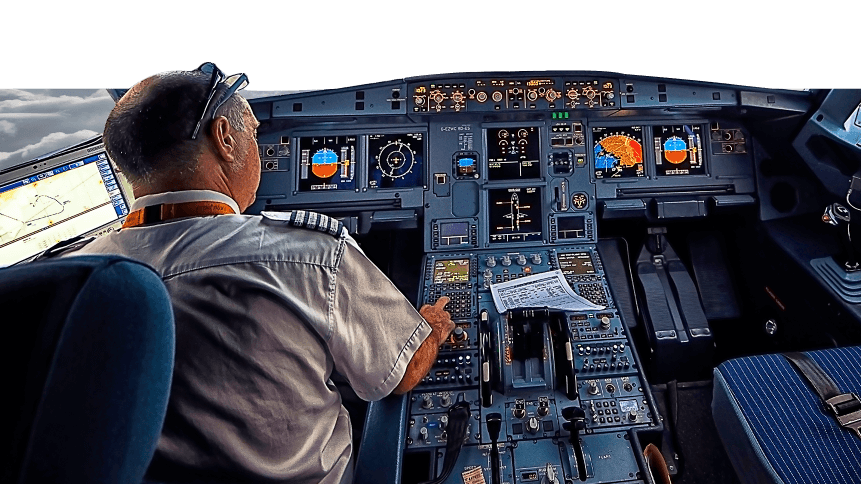Airbus and Nasdaq join forces to make airlines profitable again

With travel restrictions in place around the world, many airlines are grounded, furloughing or laying off staff completely, with an end to a market depression nowhere in sight. Even when passengers begin flowing through airports again, a complete recovery could take years for many firms – others likely won’t make it through.
In the UK, short-haul carrier EasyJet has grounded its entire fleet for 2 months and will scale back plans for £4.5 billion (US$5.5 billion) in spending – some of which was earmarked for new Airbus aircraft.
US flag carrier United Airlines said daily revenues had plummeted by “over US100 million a day.” United’s planes are still flying, but with just 15 percent of seats filled at present, while 70 percent of its schedule is cut for April, and further cuts expected in May.
These are just two examples of the financial toll inflicted by Covid-19 on air travel. As we are seeing in other industries, survival may count on strategic collaborations and innovative technology.
In a highly-competitive, expensive industry where profit margins can be minute in the best of circumstances, Airbus has teamed up with Nasdaq in efforts to develop a financial instrument to help manage air travel revenue risk, and support airlines’ lean spending plans on the road to market recovery.
It’s in the aerospace giant’s interest, of course, that the market flourishes once again, as quickly as possible, and it can resume selling its four-hundred-million-dollar aircraft to carriers.
The mechanics behind revenue risk management
To date, airlines hedge against fluctuations in currencies, interest rates, and the price of fuel.
Even though these derivative contracts help carriers minimize the risk of exposure to external costs, there isn’t an existing instrument that can facilitate the air travel industry to manage revenue volatility effectively.
Along with long-term financial commitments, the air travel sector is weighed down by short-term revenue visibility, in which 90 percent of airfares are booked within 90 days before take-off.
The Airbus subsidiary Skytra was established in 2019 to help the US$1 trillion per annum air travel industry to develop a new platform for air travel price derivatives – its CEO, Mark Howarth, has more than two decades of experience in the finance sector, together with a senior management team from both aviation and financial industries.
Airbus said it recognized the need for ‘revenue-based’ risk management. Airlines can now hedge against the volatility from external factors such as natural disasters, political disputes, or terrorist attacks, that would significantly reduce sales.
The company has developed a pool of global and regional indices for the past two years that monitors and tracks any changes in airfares across markets. In other words, airlines will be able to protect themselves from unprofitable routes and lower fare prices before entering any financial contracts.
The partnership could add some predictability in what is naturally a volatile market, and can help airlines manage costs more effectively, in what will continue to be a very tough market, likely for several years.
“We chose to work with Nasdaq because of its impressive track record in delivering best-in-class infrastructure, technology, and innovation for markets across the globe,” said Howarth.
“Its modular architecture means we will be positioned for growth as the Skytra platform builds traction with the airline industry and as we cater to the wider needs of other market participants.”
The deal will see Nasdaq deliver a cutting-edge marketplace system, “including the core matching engine, the regulatory reporting required under MiFID II, and the market surveillance and pre-trade risk management solutions.”
Nasdaq will also be responsible for hosting the systems in its data centers and public cloud. The company will provide full-range technical and maintenance services for its operations, software, and infrastructure.
Looking at the current climate, where economic upheaval has caused significant turmoil for multinational and local carriers, innovative initiatives must continue to emerge to help air travel industry to face unanticipated global events, and make them fully-operational again.
While it’s estimated the industry may have to weather around 7 months of business downturn, optimists say air traffic may see a rebound that will overshoot normalized demand as pent-up consumer demand is released.
“The creation of Skytra by Airbus represents a dynamically-new intersection between aviation and financial marketplaces,” President and CEO Nasdaq, Adena Friedman.
“By integrating our market technology, Skytra will have the scalability and flexibility to continuously improve the trading experience to the benefit of both the global airline industry and financial market participants.”










